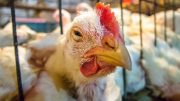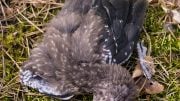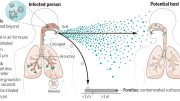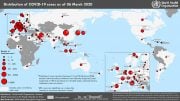
A study by researchers in China and Nottingham found that a subtype of the H3N8 avian influenza virus currently prevalent in Chinese poultry farms is undergoing mutations that facilitate airborne transmission and can cause severe infections in humans, raising fears of a potential pandemic. The research emphasizes the urgent need for close monitoring and research on these viruses in poultry and humans, noting that even vaccinated populations may be vulnerable to this new strain.
Researchers from China and Nottingham have identified mutational changes occurring in a subtype of avian flu virus endemic in poultry farms in China. These alterations could increase the likelihood of transmission to humans.
Researchers also say that the findings raise concerns of a potential epidemic or pandemic in the making and that concerted research is necessary to closely monitor such viruses in poultry and humans.
The results, which have been published in Cell, report on the characterization of a human isolate – from a human patient – of the H3N8 avian influenza virus (AIV). Using laboratory mice and ferrets as models for human infection, the study found that the virus has undergone several adaptive changes to cause severe animal infections and making it transmissible by the airborne route between animals.
In humans, the avian H3N8 virus infection has been found to cause acute respiratory distress syndrome and can even be fatal. The virus is widespread in chicken flocks; however previously, the features of how it might be transmitted from animals to humans is poorly understood.
“We demonstrate that an avian H3N8 virus isolated from a patient with severe pneumonia replicated efficiently in human bronchial and lung epithelial cells was extremely harmful in its effects in laboratory mammalian hosts and could be passed on through respiratory droplets,” says Professor Kin-Chow Chang, at the University of Nottingham.
“Importantly, we discovered that the virus had acquired human receptor binding preference and amino acid substitution PB2-E627K, which are necessary for airborne transmission. Human populations, even when vaccinated against the human H3N2 virus, appear immunologically naïve to emerging mammalian-adapted H3N8 AIVs and could be vulnerable to infection at an epidemic or pandemic proportion.
“Acid resistance of influenza virus is also an important barrier for avian influenza virus to overcome to acquire the adaptability and transmissibility in new mammals or humans. The current novel H3N8 virus has not acquired the acid resistance yet. So, we should pay attention to the change on acid resistance of the novel H3N8 virus.”
Reference: “Airborne transmission of human-isolated avian H3N8 influenza virus between ferrets” by Honglei Sun, Han Li, Qi Tong, Qiqi Han, Jiyu Liu, Haili Yu, Hao Song, Jianxun Qi, Jiaqi Li, Jizhe Yang, Riguo Lan, Guojing Deng, Haoyu Chang, Yajin Qu, Juan Pu, Yipeng Sun, Yu Lan, Dayan Wang, Yi Shi, William J. Liu and Jinhua Liu, 4 September 2023, Cell.
DOI: 10.1016/j.cell.2023.08.011









People are aware & alert now and majority is vaccinated, which may lower the risk.
Considering the murderous behavior of Westerners not only upon others and themselves; a pandemic might be a welcome relief from ourselves and our constant attempts to trigger a highly survivable worldwide nuclear war; at least for a few individuals.
While ozone has hazards associated with it, it also has potential great benefits. Breathing a very small amount of it can prevent lung bacteria and viruses from harming us. And if our lungs stay clear our immune system takes care of the rest of the body.